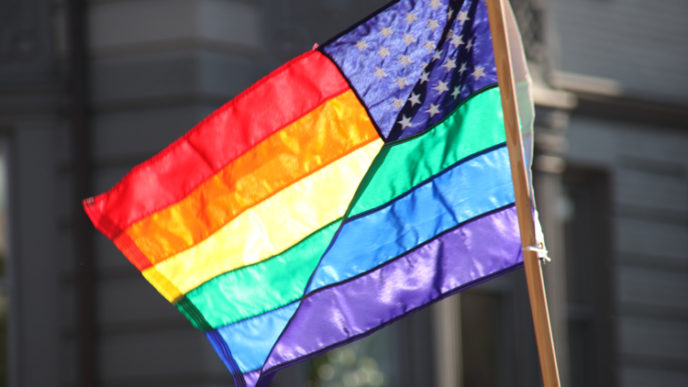Taiwan Becomes First Asian Country to Mandate Same-Sex ‘Marriage’
Taiwan declared today that disallowing same-sex “marriage” is discriminatory. It will therefore amend its Constitution to allow gmarriage. Gmarriage is government-defined marriage, as opposed to actual marriage.
Taiwan’s Judicial Yuan announced that the current Constitution did not protect gmarriage, which they called “a major falsehood.” They said it will take two years to amend the Constitution and change civil laws. The Stream predicted this move last December.
The Judicial Yuan said that Taiwan’s Civil Code does not now “allow two persons of the same sex to create a permanent union of intimate and exclusive nature for the committed purpose of managing a life together.” The government did not say why they choose “two persons” and not some other number. Divorce is legal in Taiwan, so the “permanent” nature of marriage is also flexible.
The press release claimed that gmarriage will not “alter the social order.” This goes against the experience of all nations that have thus far instituted gmarriage. Forced participation has instead been the rule.
Taiwan’s Justification
Taiwan’s government justified the move with ideology. “Sexual orientation is an immutable characteristic that is resistant to change,” it said. “Major medical associations have stated that homosexuality is not a disease.” They also say that “homosexuals … have been a discrete and insular minority in the society,” a fact which is unlikely to change even under legal gmarriage.
The Judicial Yuan anticipated criticisms by those who hold to the actual definition of marriage. It said the Civil Code’s “Marriage Chapter does not set forth the capability to procreate as a requirement for concluding an opposite-sex marriage. Nor does it provide that a marriage is void or voidable, or a divorce decree may be issued, if either party is unable or unwilling to procreate after marriage.”
Marriage as means to creating and nurturing families in support of society is not accepted as a valid point.
As in other countries, gmarriage in Taiwan becomes what the government says it is: two people coming together for whatever length of time suits their purpose. There’s no hint in the government’s announcement what penalties people who do not agree with gmarriage will face.
How Did Taiwan Get Here?
How did this Asian and once deeply conservative country become like any other Western nation? One clue comes from the makeup of the Taiwanese Government, which is a democracy. The country’s President Tsai Ing-wen has a Masters from America and a PhD from England. She has long expressed public support of “gay rights.” The Vice President Chen Chien-jen was schooled in Taiwan, and is Catholic. But he said he supported gay “rights,” though he waffled on his beliefs on gmarriage. He said publicly last year that it needed “further debate.” The official Catholic position is, of course, that gmarriage does not exist.
Closer to the point, the Chief Justice of the Judicial Yuan had his graduate education in Germany. Seven other Justices have graduate degrees from Western universities. Every foreign-trained Justice except one voted for gmarriage.
A minority of six Justices were educated in Taiwan. Four of these voted for gmarriage, with one other Justice dissenting. Reuters reports one additional Justice recused himself from the case because “he is married to a lawmaker who backs gay rights.”
Exposure to Western education is thus highly predictive of support for gmarriage.
The two dissenting Justices are Huang Horng-Shya and Wu Chen-Huan. (I could not discover the dissenting opinions on the official site.) In a 2015 interview with ET Today, Wu cautioned that “same-sex marriage has a great impact on society.” He has also been quoted warning about the expansion of powers and the “changing of tradition” by the government.
Justice Huang was quoted by China Times saying that families are derived from marriage, and that same-sex “marriage” does not consider the right of families. She also pointed out that same-sex “marriage” involves more than just the two people undergoing the ceremony. She echoed Justice Wu that gmarriage will influence all of society.
Taiwan’s move is similar to that of the United States Supreme Court, which in 2015 “discovered” a previously hidden “right” to gmarriage. The matter in both countries was not put to a vote. In March, polls indicated a healthy majority of Taiwanese were against gmarriage, with opposition rising further from the cosmopolitan capitol of Taipei. (For more from the author of “Taiwan Becomes First Asian Country to Mandate Same-Sex ‘Marriage'” please click HERE)
Follow Joe Miller on Twitter HERE and Facebook HERE.




